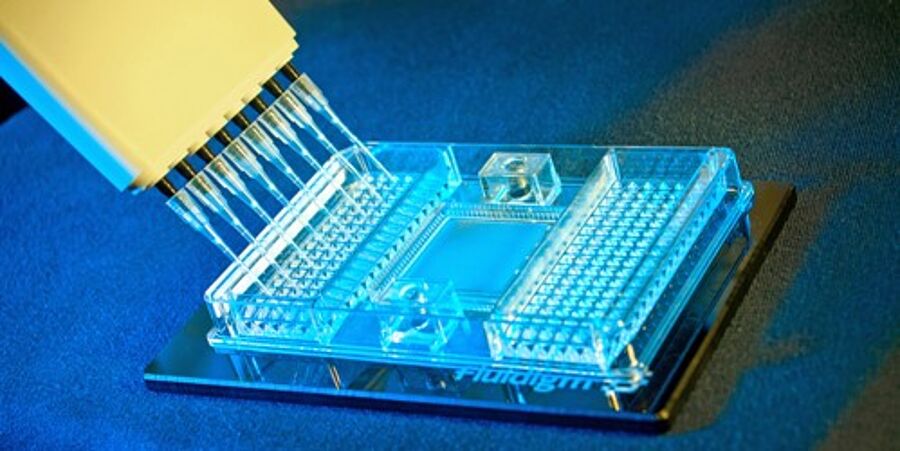Sensor technologies for Point-of-Care diagnostics
Rapidly ageing societies in developed countries demand innovative solutions for future health care systems. Telemedicine, e-health and personalized medicine will successfully address these future challenges. However, to really achieve a fundamental breakthrough in this direction, the development of highly sensitive, miniaturized, easy-to-use, and cost-effective sensor systems for Point-of-Care (PoC) diagnostics is indispensable.
At AIT, our interdisciplinary team of chemists, physicists, biologists, and electrical engineers adopts a systemic approach to develop diagnostic sensor system concepts for PoC, delivering solutions that perfectly meet our customers’ application needs.
RESEARCH SERVICES
- Surface functionalisation & electrochemical detection methods: Development of surface functionalisation protocols and electrochemical detection methods for specific target molecules and liquid samples. We use signal enhancement mechanisms to achieve maximum sensitivity and short measurement times
- Sensor system development: Implementation of miniaturised and automated sensor systems with fluidic control and readout units. Special emphasis is placed on user-friendliness.
- Simulation and modelling: It is of pivotal importance in R&D projects to quantify the effect of various parameters on a system before fabricating it. We are your partner of choice for following applications:
- Photonic waveguide devices
- Optical systems
- Nanomagnetic systems
- Microfluidics
- Characterization of photonic, nanomagnetic and electrical sensing components; performance testing of biosensors
SENSOR DEVELOPMENT
Next generation point-of-care (PoC) diagnostic tools will heavily rely on highly miniaturized systems for the detection of the relevant analytes.
AIT‘s Molecular Diagnostics specialists are committed to develop highly sensitive sensors for analyzing body fluids and tissues using innovative photonic, electrochemical, magnetic and nanomaterial-based methods. Our developments are suitable for cost-effective mass production and use environmentally compatible materials in manufacturing and disposal.
In particular, AIT has extensive expertise in the development and fabrication of sensors based on electrochemical sensor structures, e.g. using inkjet printing and paper-based concepts, nanoparticle-based methods, integrated optical waveguides, or magnetoresistive sensor layers (GMR and TMR). Our primary aim is to achieve optimal performance of the sensor system using state-of-the-art methods in simulation and physical modelling. Furthermore, AIT owns a solid competence in elaborating dedicated strategies for the chemical modification of the sensor surface.
With the profound know-how of our interdisciplinary team, AIT is your partner of choice when it comes to solving complex sensor challenges.
MICRO & NANO TECHNOLOGIES
The AIT Laboratory for Thin Film Technology, which specializes in the integration of different materials and components, is the central unit for demonstrator production. It develops functional thin films and coatings using the opportunities offered by micro- and nanotechnology for devising and implementing innovative concepts and systems for biomedical diagnostics, lab-on-chip components and sensors.
Micro & Nano Fabrication
- Material inkjet-printing
- Magnetron sputtering
- Evaporation
- Electrochemical deposition of metals and semiconductors
- Optical lithography
- Electron-beam lithography
- Atomic force lithography
- Argon ion etching
- Wet chemical etching
- Oxygen plasma ashing
Micro & Nano Characterization
- Scanning electron microscope (SEM)
- Atomic force microscopy (AFM)
- Surface profiler
- 4-point probe station
- Electrochemical potentiostats
- Fully equipped optical test setup for integrated waveguide devices in various wavelengths regions
- UV-VIS-NIR-MIR spectrometer & monochromator
- Surface energy and tension analyser
- Viscosimeter



